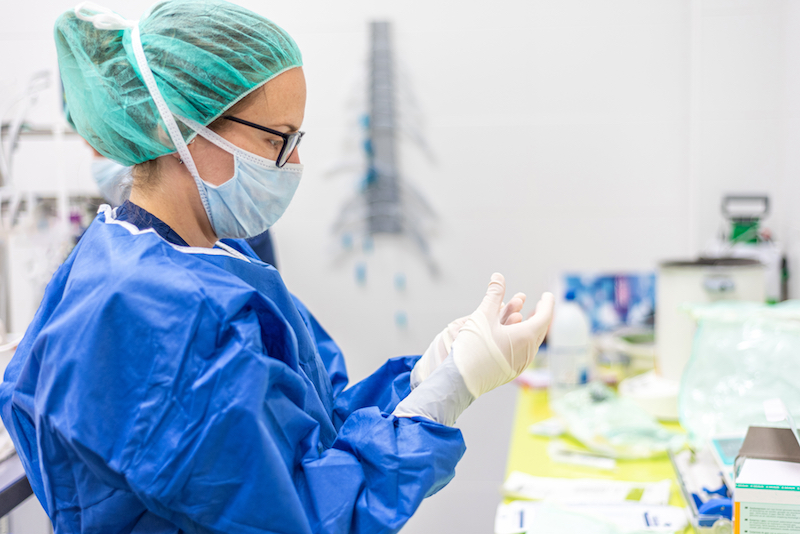They are all terrified.

Every nurse and doctor, housekeeper and transporter, engineer and pharmacist – every worker stepping into the hospital knows they are risking exposure to Covid-19…risking severe illness for themselves and their families when they return home.
Risking death.
How do they summon the courage and the strength to return day after day, shift after shift, and put their bodies on the line of fire? For many nurses like Nurse T. it is simply their job. They live to serve the sick, just as nurses – “Medical Sisters” in olden days – have done for generations. They swore an oath when they earned their certificate or license. It is a sacred oath. It is the core of their profession.
Some of the hospital workers cope with the fear more effectively than others. Veteran nurses and physicians have the greatest ability to control the terror, since they have encountered Death time and time again. The Grim Reaper is an old acquaintance. Many a physician has labored over a patient in cardiac arrest, fighting in vain to bring the patient back. Many a nurse has washed the body, sealed the eyelids shut with a dab of lubricant, sprinkled oil of peppermint on the body to mask the odor, and folded the hands neatly on the chest, ready for the family to visit one last time before zipping up the body bag and sending it to the cold storage locker to await the undertaker.
Or the medical examiner.
So while Death is now let loose and raging through the hospital, his presence is more intense but he is not a novel visitor. During the pandemic Nurse T. may assist in wrapping four bodies in one shift, rather than the one body in a week or a month from the old days, but the routine is the same.
Loyalty to their teammates also draws them back to work. As Nurse T. walks past the temporary refrigerated tent holding the overflow of bodies, she smells a putrid odor, the work of bacteria from the bowel feasting on the dead organs. She hurries past and enters the facility, taking the stairs to avoid the elevator and the co-workers crowded inside. She could not bear to leave her comrades short-handed, it is an old taboo, strongly felt. You come to work to share the burden, you do not abandon your mates.
Staff from other departments that do not normally care for terminal patients are less comfortable as they are pulled into the maelstrom of the Covid-19 wards. For medical students recruited to patient care, the experience can shake them to their emotional core. Orders are yelled at them, they hurry to draw blood and rush it to the lab; quickly assess new patients and report to their chief; help a nurse to restrain a delirious patient fighting for air. For life. They push a stretcher with a fresh body downstairs and out to the fetid temporary morgue.
For the new grads, it is baptism by fire: a decade of experience delivered in a week. In a day. In an hour. For clerical staff unaccustomed to direct patient contact, it is a revelation, frightening but ennobling.
And still they return, exhausted but not defeated; terrified but undaunted. The patients cry out for help: the caregiver manages a grim smile behind the mask and lays a gentle hand upon the suffering. The bond is strong, it cannot be broken. Not even Death can sever it.
This report is based on conversations with Nurse T., who works in an ICU in a New York teaching hospital.
Timothy Sheard, a retired RN, worked in hospitals for over 40 years. He is an author of medical mystery novels and founder of Hard Ball Press, a social justice imprint.



